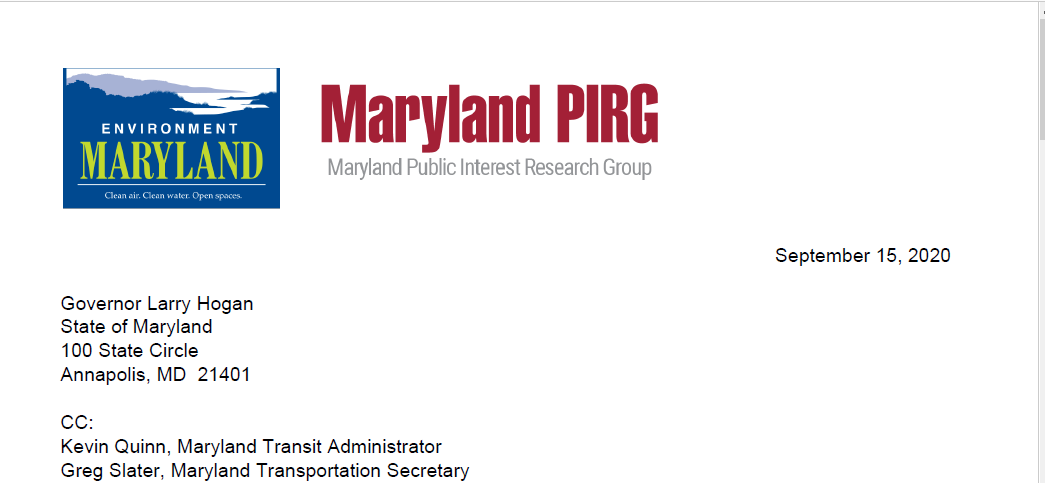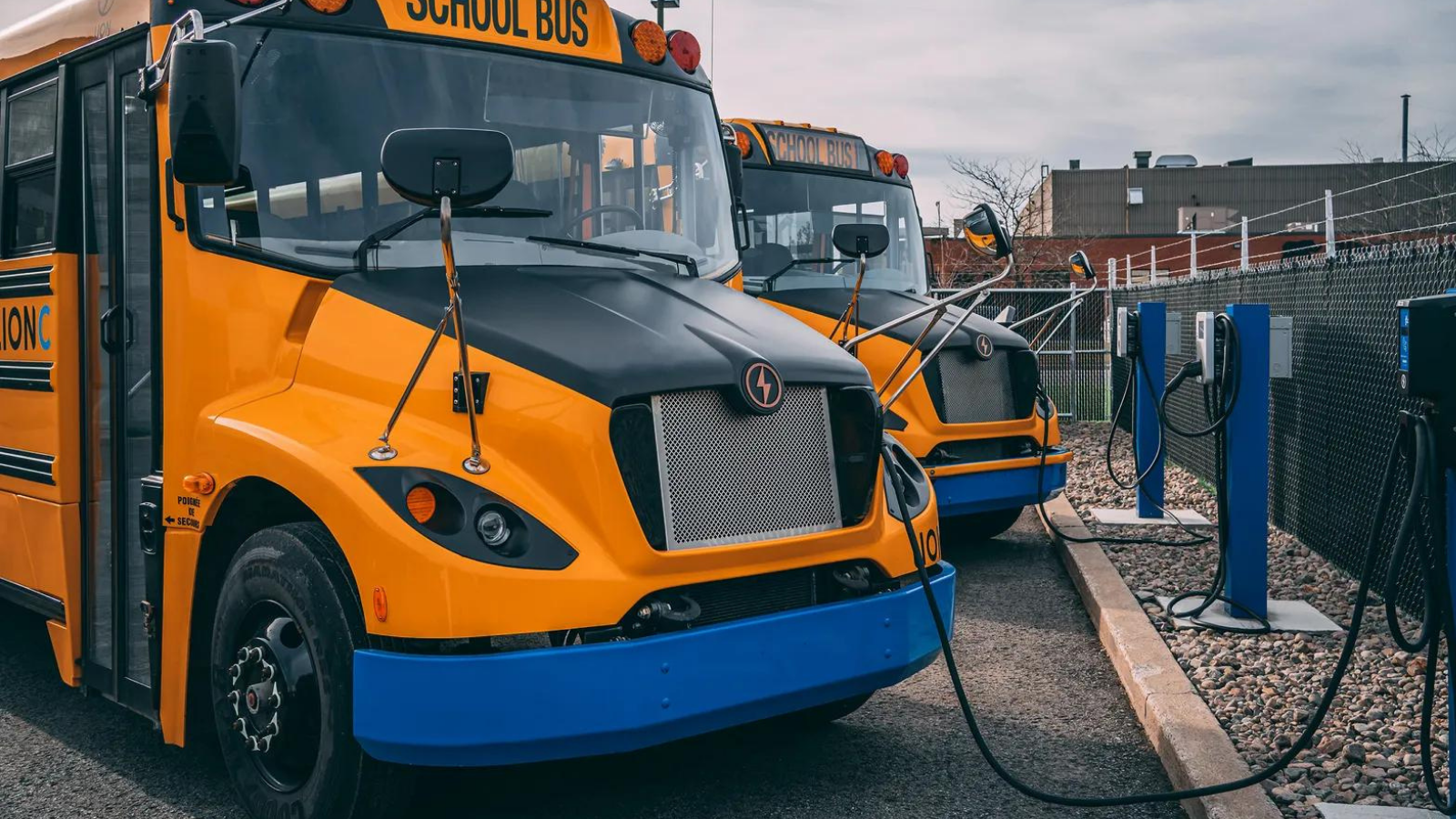
We’re calling on Gov. Hogan to hit reverse on transit cuts
Today Maryland PIRG and Environment Maryland sent a letter to Gov. Hogan, Secretary Slater, and Administrator Quinn in opposition newly proposed cuts to transit funding.

Today Maryland PIRG and Environment Maryland sent a letter to Gov. Hogan, Secretary Slater, and Administrator Quinn in opposition newly proposed cuts to transit funding, joining more that 60 Maryland organization who have come together to oppose the cuts.
Now is not the time to disinvest in transit. As we respond to the COVID-19 crisis, and work to safely reopen and recover, we must do so in a way that moves Maryland forward to improve our health, builds stronger communities, and creates accessible, safe ways to get around.
In early September, the Maryland Department of Transportation and Maryland Transit Administration announced $43 million in cuts to the MTA operating budget and $150 million in cuts to the six year capital budget. While modest operating cost reductions may make sense, such as telework and other savings due to COVID-19 or technological improvements, it is absolutely unacceptable to cut service or the capital budget.
The proposal includes cutting bus service by 20% and reducing MARC, commuter bus, and paratransit service. The $150 million in cuts to the MTA’s six year capital budget means deferring equipment replacement, bus division upgrades, parking lot maintenance and state funding for local transit systems.
While we have seen short-term decline in all transportation use due to COVID-19, the long term trends are likely to continue as they have: people are increasingly demanding access to public transportation, safe biking and walking routes, and modern ride-share options.
Short-term, access via transit to hospital systems and food supply chains is vital to the success of the COVID-19 public health response. According to research from Transit Center, 36% of transit users are classified as essential during the COVID-19 emergency, including hospital staff, grocery store workers, pharmacists, social service providers, and others. Cutting service in the midst of a pandemic is dangerous to health and safety.
Long term, we should do everything we can to support the shift away from driving for the health of our communities and planet. We must invest today in the transit we want for our future. Cutting transit means more Marylanders will be forced into cars, or left unable to travel to work, shop, and learn.
Each year, pollution from cars, trucks and other vehicles cuts short an estimated 58,000 lives in the United States, and increases the risk of lung cancer, stroke and heart disease. Transportation is also now Maryland’s number one source of greenhouse gases, with emissions from cars, trucks, buses and other vehicles surpassing every other source.
Cars are much safer than they used to be, but motor vehicle crashes each year still kill an estimated 40,000 Americans and seriously injure 4.5 million. And, with some of the worst traffic in the world, many Marylanders agree that we need to have more transportation options so we can keep cars off the road and reduce traffic congestion.
If we make it easier, more affordable, and more pleasant for more people to take a train or bus, or to bike or walk, then more of us will choose to do so. Ultimately, the future of transportation is about rescuing Marylanders from the nightmare transportation has become. It’s about expanding our choices, while losing fewer lives to traffic jams, car accidents and toxic fumes.
We are calling on Gov. Hogan, Secretary Slater, and Administrator Quinn to hit reverse on these shortsighted cuts to the MTA operating and capital budgets.
Governor Hogan: Hit Reverse on Transit Cuts
Now is not the time to disinvest in transit. As we respond to the COVID-19 crisis, and work to safely reopen and recover, we must do so in a way that moves Maryland forward, expanding our choices, while losing fewer lives to traffic jams, car accidents and toxic fumes. Tell Governor Hogan to reject these shortsighted cuts to the MTA operating and capital budgets.
Topics
Authors
Emily Scarr
State Director, Maryland PIRG; Director, Stop Toxic PFAS Campaign, PIRG
Emily directs strategy, organizational development, research, communications and legislative advocacy for Maryland PIRG. Emily has helped win small donor public financing in Baltimore City, Baltimore County, Howard County, Montgomery County, and Prince George's County. She has played a key role in establishing new state laws to to protect public health by restricting the use of antibiotics on Maryland farms, require testing for lead in school drinking water and restrict the use of toxic flame retardant and PFAS chemicals. Emily also serves on the Executive Committees of the Maryland Fair Elections Coalition and the Maryland Campaign to Keep Antibiotics Working. Emily lives in Baltimore City with her husband, kids, and dog.
Find Out More

A threat to federal climate investment: Highway boondoggles

State, federal laws make it easier than ever to transition to electric school buses

Electric school buses can clean up our energy and transportation systems

